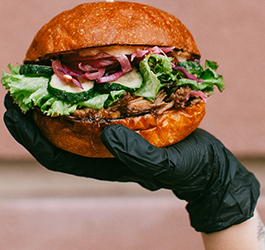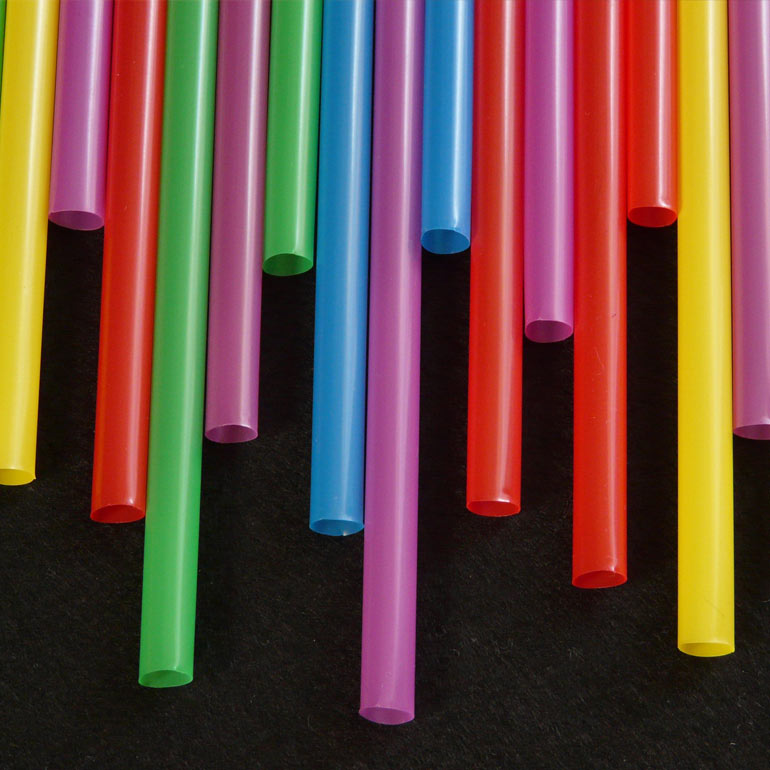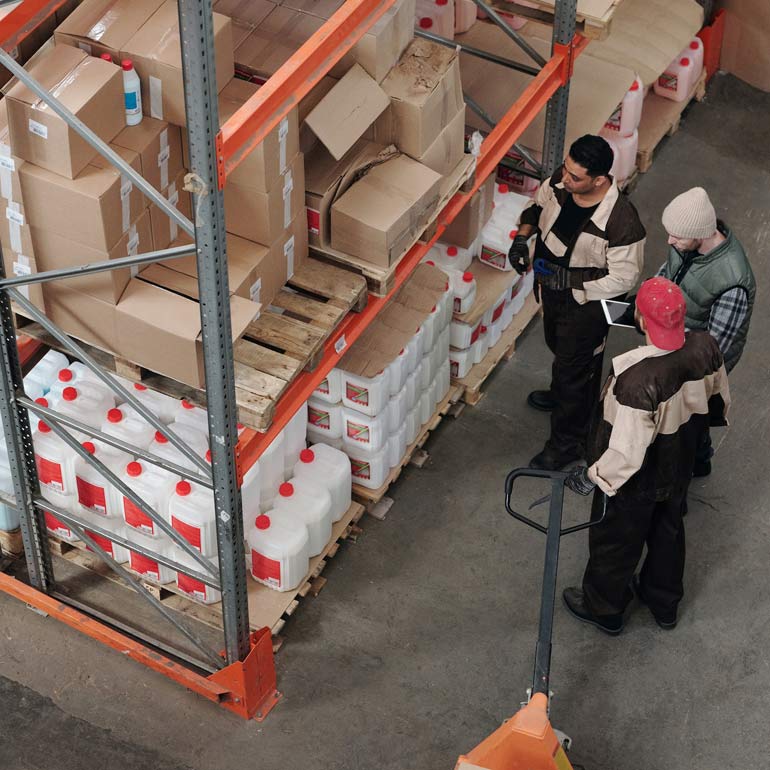Best Disposable Gloves for Cooking
Do you find yourself needing a pair of food-handling gloves, only to find an empty box instead? Perhaps you have hired an employee who may have an allergy to particular materials that food gloves are made out of. Has it been difficult to find a reliable distributor of bulk disposable gloves? Did you know that there are many different types of disposable food gloves available, each one suited for a specific need?
Choosing the best disposable gloves for cooking is crucial for ensuring safety and hygiene in food handling and preparation. Richmond Advantage offers a wide range of disposable gloves to meet the needs of any food service business.
Common Types of Disposable Gloves for Cooking and Food Handling
- Polyethylene: Polyethylene gloves are widely used in the food service industry due to their lightweight and flexible nature. They offer excellent dexterity and are ideal for tasks that require precise movements, making them a popular choice for food handling and preparation. Polyethylene gloves are also disposable, which helps to maintain hygiene and reduces the risk of cross-contamination. However, they are not as durable as other types of gloves and may tear more easily, which can compromise their barrier protection. Additionally, they provide limited resistance to heat and chemicals, making them less suitable for tasks that require protection from these elements. Overall, Polyethylene gloves are a good choice for those who need gloves for light to medium-duty tasks in the food service industry.
- Latex: Latex gloves are a common choice for cleaning tasks due to their natural feel and excellent barrier protection against bacteria and viruses. They provide comfortable wear and good grip, making them ideal for tasks that require a firm hold. Latex gloves are also highly elastic and offer good dexterity, making them suitable for tasks that require precise movements. However, they are not recommended for those with latex allergies and may cause skin irritation. It is because of this reason that latex gloves are not suitable for food handling. Additionally, they are not as resistant to punctures and chemicals as other types of gloves, which can compromise their barrier protection. Overall, Latex gloves are a good choice for those who need gloves for light to medium-duty tasks and do not have latex allergies.
- Neoprene: Neoprene gloves are a popular choice in the food service industry for tasks that require resistance to grease and oils. They are durable and provide excellent grip, making them ideal for tasks that require a firm hold. Neoprene gloves are also chemical-resistant and can withstand tough conditions, making them suitable for tasks that require protection from harsh chemicals. However, they may not be as flexible as other types of gloves and may not provide the same level of dexterity. Additionally, they are not recommended for tasks that require resistance to heat, as neoprene can deteriorate at high temperatures. Overall, Neoprene gloves are a good choice for those who need gloves for heavy-duty tasks in the food service industry that require resistance to grease and oils.
- Vinyl: Vinyl gloves are a cost-effective alternative to latex gloves in the food service industry. They are lightweight and offer good barrier protection, making them ideal for a wide range of food-handling tasks. Vinyl gloves are also latex-free, making them suitable for those who have latex allergies. Vinyl gloves are FDA approved for food handling. However, they may not be as durable as other types of gloves and may tear more easily, which can compromise their barrier protection. Additionally, they may not provide the same level of comfort as other types of gloves and may cause skin irritation. Overall, Vinyl gloves are a good choice for those who need gloves for light to medium-duty tasks in the food service industry and have latex allergies, or who are looking for a cost-effective alternative to latex gloves.
- Nitrile: Nitrile gloves are a popular choice for tasks that require resistance to punctures and chemicals. They are highly resistant to punctures and chemicals, making them ideal for tasks that require protection from harsh conditions. Nitrile food-handling gloves are safe for food handling. Nitrile gloves are also latex-free and provide good barrier protection against bacteria and viruses. However, they may not be as flexible as other types of gloves and may not provide the same level of dexterity. Additionally, they may not be as comfortable to wear as other types of gloves and may cause skin irritation. Overall, Nitrile gloves are a good choice for those who need gloves for heavy-duty tasks in the food service industry that require resistance to punctures and chemicals, and for those who have latex allergies.
- Synthetic: Synthetic gloves are a versatile option in the food service industry that offer a combination of features from different types of gloves. They are lightweight and flexible, making them ideal for tasks that require precise movements. They are FDA approved for food handling purposes. Synthetic gloves are also durable and can provide good barrier protection against bacteria and viruses. However, the level of protection and durability may vary depending on the specific type of synthetic material used. Additionally, synthetic gloves may not be as resistant to punctures and chemicals as other types of gloves, which can compromise their barrier protection. Overall, Synthetic gloves are a good choice for those who need gloves for light to medium-duty tasks in the kitchen and are looking for a versatile option that offers a combination of features from different types of gloves.
Richmond Advantage - Your Preferred Business Supply Source
Richmond Advantage offers a wide range of disposable gloves to meet the needs of any food service business. With nationwide shipping, competitive pricing, and free local delivery options, getting the gloves needed is made easy and convenient. Experience the benefits of Richmond Advantage by placing an order today!














